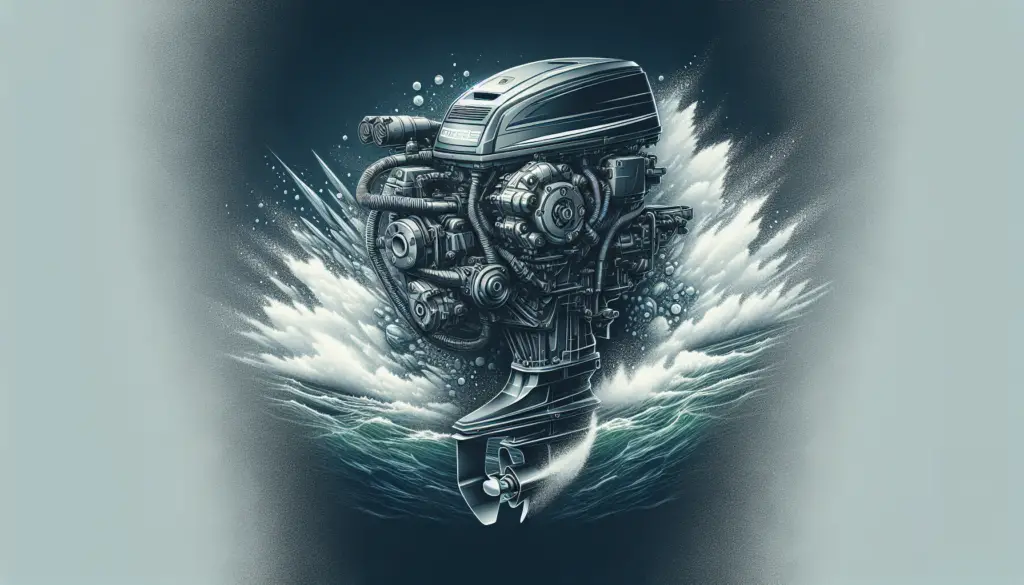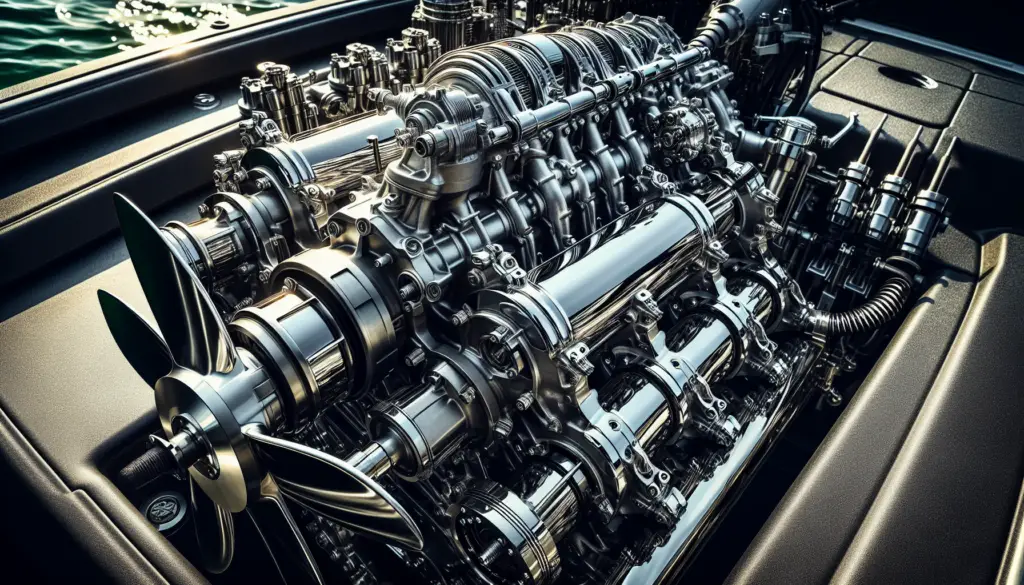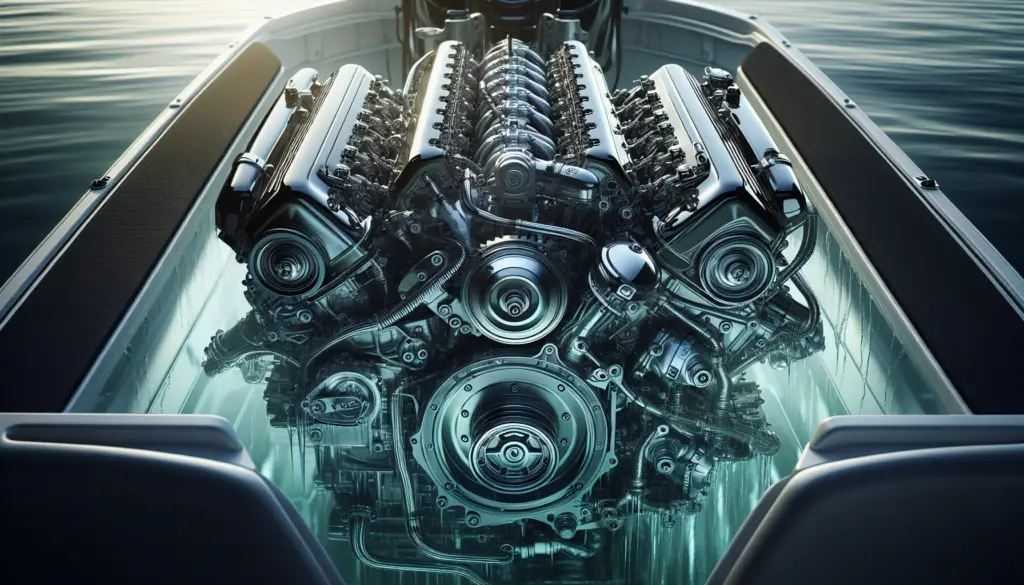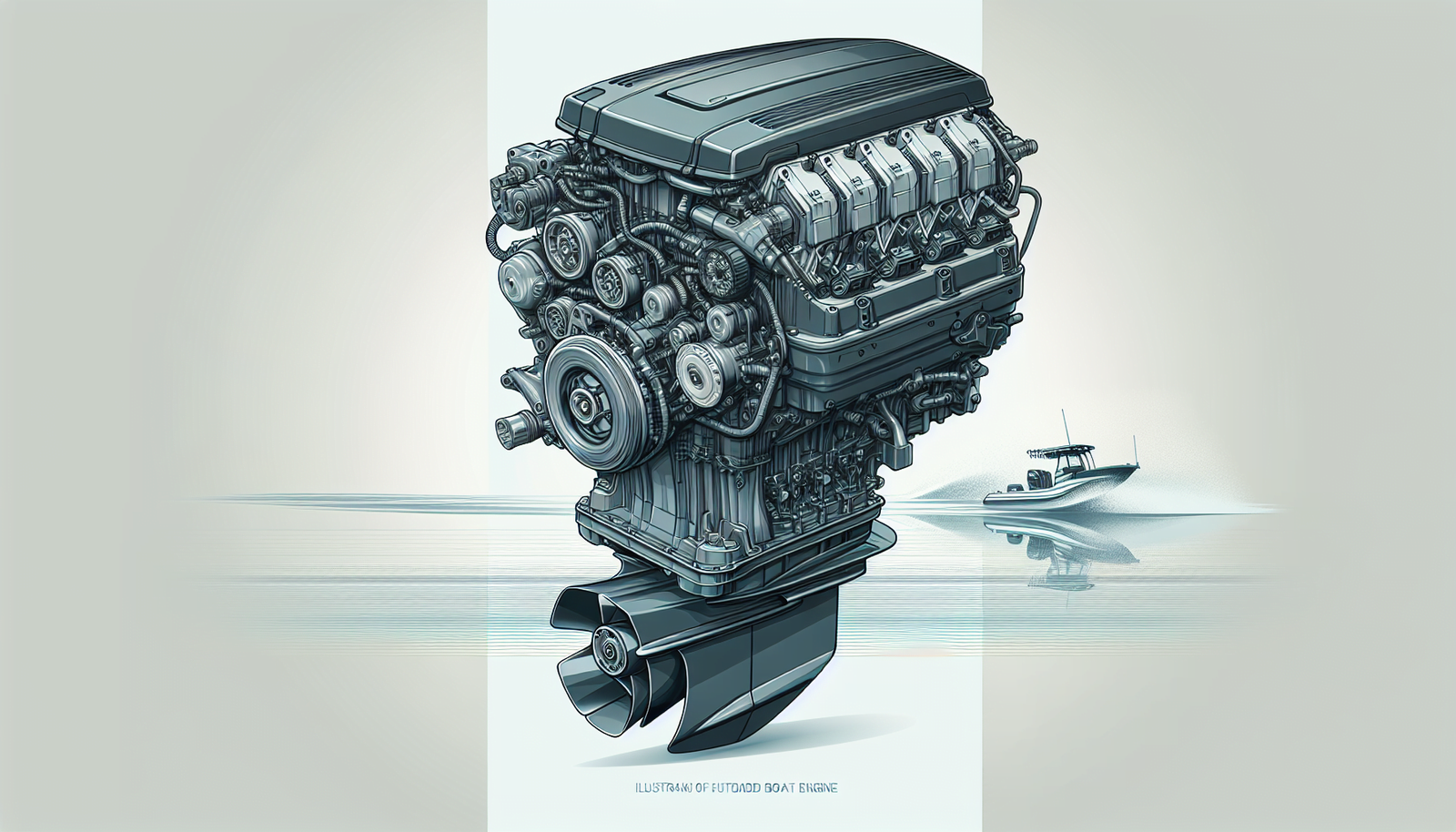If you’re in the market for a boat engine specifically tailored for the rigors of saltwater fishing, you’ve come to the right place. Balancing power, portability, and durability can be a daunting task even for veteran boat enthusiasts. Fear not, however, as this article will walk you through the ins and outs of selecting the ideal engine for your saltwater fishing endeavors. Whether you’re a leisure angler or a professional mariner, these tips will help you make an informed choice and get the most out of your seafaring trips. Now, let’s set sail on this journey to find the perfect boat engine for you.

Understanding the Importance of the Right Engine
Choosing the right boat engine is a crucial task that cannot be taken lightly. The performance, efficiency, and overall experience of your fishing expedition highly depend on your choice of engine.
Factors influencing the choice of boat engine
Numerous factors should be considered when selecting a boat engine. These include the type of boat, the expected usage of the boat, the weight of the boat and its contents, and consideration of the type of water you will be navigating, such as saltwater versus freshwater. The required horsepower, fuel efficiency, corrosion resistance, noise level, maintenance needs, and your overall budget also influence your decision.
Impact of wrong engine choice on saltwater fishing
A poorly matched engine won’t merely compromise your boat’s performance and fuel efficiency; it can also expose your engine to potentially expensive wear and tear. For instance, an engine that is too small for your boat will need to work harder, thereby increasing the likelihood of its breakdown. On the other hand, an engine that is too large for your boat can make the boat unstable. Even a minor oversight in considering corrosion, vibration, or noise can adversely affect your fishing experience.
Types of Boat Engines
Understanding the different types of boat engines is essential before making a choice. Mainly, there are three types of boat engines: Inboard engines, Outboard engines, and Stern Drive engines.
Inboard engines
Inboard engines are installed inside the boat’s hull. They provide higher power output and are generally smoother and quieter than outboard engines. They are mostly used in larger and heavier boats due to their higher power range and weight.
Outboard engines
Outboard engines are attached to the stern of the boat and hang outside the back. They are popular due to their ease of maintenance, installation, and replacement. Their weight does not greatly impact the boat’s balance, and they are ideal for smaller or medium-sized boats.
Stern Drive engines
Stern Drive engines, or Inboard/Outboard engines, are a hybrid of inboard and outboard engines. They combine the inboard engine’s power and the outboard engine’s ease of maintenance. They have a lower profile on the boat, which can mean more space for seating and storage.

Selecting the Appropriate Engine Type for Saltwater Fishing
Choosing the right type of engine for saltwater fishing involves several considerations.
Key considerations in type selection
Firstly, the required horsepower for the boat will significantly influence the engine type. The usage of the boat (such as speed or towing needs), the type of saltwater (whether inshore or offshore), and the boat’s weight should be factored in. You must also assess the need for fuel efficiency and range, ease of maintenance, and durability in a saltwater environment.
Benefits and drawbacks of each engine type in saltwater environment
Inboard engines are potent and smooth, but they are more complex and expensive to maintain, especially in the harsh saltwater environment. Outboard engines are easy to maintain and replace, but their exposure to the elements can be a disadvantage in saltwater. Stern Drive engines offer a good compromise between power, ease of maintenance, and exposure, but can be more expensive upfront.
Power Requirements and Engine Size
Power requirements and engine size are directly interconnected. Your boat won’t perform optimally without the right size engine.
Determining your boat’s power requirements
Power requirements are largely based on the boat’s weight, length, and usage. Are you planning on leisurely cruises, or will you be towing water skiers? Will you be navigating through rough waters or smooth? These factors will influence how much power you need.
How engine size relates to power output
Engine size relates directly to power output. Larger engines produce more power, and smaller engines produce less. It doesn’t mean you should always opt for the biggest engine, though. The engine size should be balanced with the boat size and needs for an optimal performance.
Appropriate engine sizes for different boat sizes
Each boat has a maximum horsepower rating which should guide your engine selection. For small to medium-sized boats (around 15-20 feet), an Outboard engine of 15-150 HP is usually sufficient. Larger boats (20-30 feet) would likely require an Inboard or Stern Drive engine of 150-300 HP.

Consideration of Fuel Efficiency
Fuel efficiency is not just a matter of reducing running costs. It is also about environmental consciousness and extending the range of your fishing expeditions.
Importance of fuel efficiency in saltwater fishing
Frequent refueling not only interrupts your fishing trips but also increases the cost of your expeditions. Inefficient fuel consumption could also mean a shorter range of travel, limiting your fishing grounds.
Engine types and their fuel efficiency
In general, four-stroke engines are more fuel-efficient than two-stroke engines. Outboard engines, particularly the newest models, are known for their excellent fuel efficiency.
Techniques to enhance fuel efficiency
Some techniques can help enhance your engine’s fuel efficiency. These include keeping the boat well-balanced, maintaining a steady speed, and ensuring your engine is well-maintained and tuned.
Saltwater Durability and Corrosion Resistance
Corrosion resistance is paramount when it comes to saltwater fishing. Saltwater is harsher on engines than freshwater and can accelerate the corrosion process.
Why corrosion resistance is crucial for saltwater engines
Corrosion can considerably shorten your engine’s lifespan, lead to expensive repairs, and impact performance. When an engine is specifically designed for saltwater use, it includes materials and treatments to resist the corrosive effects of saltwater.
Engine materials and corrosion
Engines for saltwater use often have components made of corrosion-resistant materials, like stainless steel or brass. They can also feature corrosion-resistant coatings and treatments.
Maintenance tips for preventing corrosion
Regular maintenance and cleaning will also help keep corrosion at bay. Washing the engine with freshwater after each use and checking for any signs of corrosion regularly are essential practices. Employing anti-corrosion sprays can also be beneficial.

Examining Engine Reliability and Maintenance Needs
Understanding the reliability and maintenance needs of different engine types can help preserve your engine’s lifespan.
Understanding reliability indicators
Reliability indicators include the engine’s brand reputation, warranty, its built quality, and the customer reviews. Hanging around docks and chatting with other boat owners can also give you excellent insights into an engine’s real-world dependability.
Maintenance needs of different engine types
Inboard engines, being complex, require more frequent and higher levels of maintenance. Outboards, which are simpler and have fewer parts, are usually easier to maintain. Stern Drives, being a kind of hybrid, fall somewhere in between.
The role of regular maintenance in engine lifespan
Regular maintenance can significantly extend the lifespan of your engine. An engine may be designed to last for years, but without regular upkeep, it may not reach those expected years of service.
Noise and Vibration Considerations
Noise and vibration can affect your comfort, as well as potential success when fishing.
Why noise level matters in saltwater fishing
Excessive noise can scare away fish, reducing the catch of the day. Besides, it can also interfere with the peaceful experience that a day out on the water should provide.
Engine types and their noise output
Inboard engines are generally quieter and smoother than Outboard or Stern Drive engines, but the latter have made significant improvements in recent years in reducing noise output.
Techniques to reduce engine noise and vibration
Not overworking the engine, keeping it in good repair, and using good quality fuel can all help reduce engine noise and vibration. New technologies, such as noise-canceling devices and vibration dampers, can also help.
Cost of Ownership and Overall Value
The sustaining cost of an engine should be one of the key considerations when choosing an engine.
Factors contributing to the overall cost of engine ownership
Several factors contribute to the overall cost of engine ownership. This includes the initial purchase price, fuel costs, maintenance costs, insurance, and potential resale value.
Balancing upfront costs and long-term value
Balancing upfront costs and long-term value is critical. You might choose an engine that is cheap to buy, but it could cost more in fuel and maintenance in the long run.
Predicting future costs and potential resale value
Think about the engine’s lifespan, its fuel consumption, its maintenance needs, and likely repairs when considering future costs. Also, consider the brand’s reputation and the engine model’s popularity when estimating the potential resale value.
Choosing the Right Brand and Dealer
The reputation of the engine brand and dealer support can be instrumental in your boat engine experience.
Recognizing reputable engine brands
Well-regarded engine brands have a reputation for reliability, durability, and performance. They have excellent customer reviews and tend to rank high in industry awards and surveys.
Importance of dealer support and service
Good dealer support can significantly impact your boat ownership experience. This includes timely servicing, easy availability of spare parts, troubleshooting support, and honoring warranty commitments.
Warranty considerations
Most engines come with a warranty that can range from one year to several years. Longer warranties usually indicate the manufacturer’s confidence in their product. Be sure to understand what the warranty covers and what it doesn’t to avoid any surprises.
In summary, the best boat engine for saltwater fishing is heavily dependent on specific requirements, budget, and considerations such as the type of boat, anticipated use, power requirement, noise level, fuel efficiency, and more. While it may seem daunting, it is worth considering all these factors before you make a decision. After all, choosing the right engine can greatly enhance your saltwater fishing experiences.

